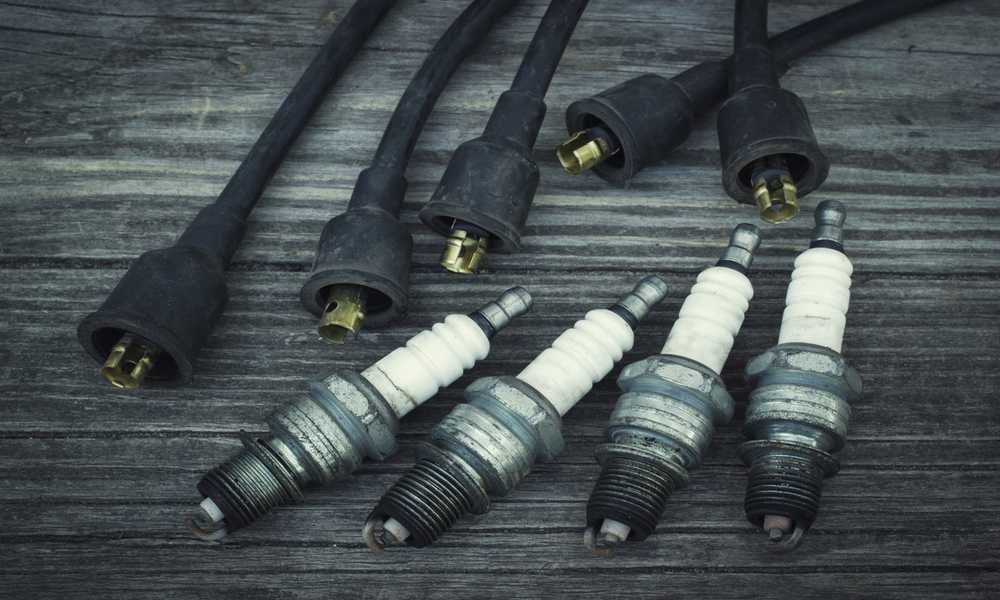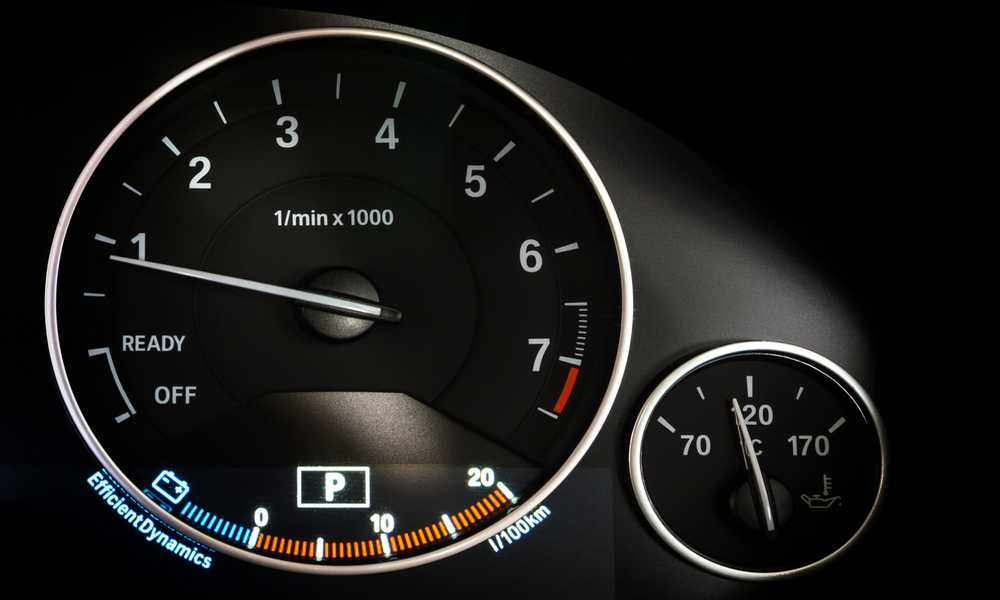Is your car shaking like a leaf in the wind until it warms up? Trust me, you’re not alone. Car engine shakes until warmed up is a common issue that many drivers face. It can be frustrating and even concerning, but fear not! In this blog post, we’ll explore the various causes behind this annoying problem and provide some insightful solutions to help you get back on the road smoothly. So buckle up and let’s dive into the world of engine shaking!
Causes of car engine shakes until warmed up
1. Low fuel in the canister

One of the causes behind an engine that shakes until warmed up is having low fuel in the canister. When your car’s fuel levels are running low, it can cause a variety of issues, including engine shaking.
When there isn’t enough fuel in the canister to properly power the engine, it may start to misfire or sputter. This can lead to noticeable vibrations and shaking while you’re driving. It’s important to always keep your gas tank filled up to avoid this problem.
Not only does low fuel affect the performance of your car, but it can also damage your engine over time. Running on empty puts additional strain on the fuel pump as well as other components within the system.
To prevent this issue from occurring, make sure you regularly check and fill up your gas tank. By keeping an eye on your fuel levels and maintaining a full tank whenever possible, you can help ensure a smoother ride without any unnecessary shaking or vibrations caused by low fuel in the canister.
2. Use bad fuel
Using bad fuel in your car can lead to a myriad of problems, one of which is engine shaking until it warms up. The quality of the fuel you put into your vehicle plays a crucial role in its overall performance.
When you use bad fuel, it can contain impurities and contaminants that clog up the fuel injectors or affect combustion within the engine. This can result in an uneven distribution of fuel and air mixture, causing the engine to shake until it reaches optimal operating temperature. Bad fuel may also have improper octane levels or be mixed with additives that are not suitable for your specific vehicle. These factors can disrupt the combustion process and cause vibrations while driving.
To prevent this issue, always ensure that you fill up your car with high-quality fuel from reputable gas stations. Avoid using old or contaminated gasoline as well. Remember, using bad fuel not only affects your engine’s performance but also impacts other components of your vehicle’s system. So make sure to give your car the right kind of nourishment it needs!
3. A discharged car battery
When your battery is low on charge, it may struggle to provide enough power to start the engine and keep it running smoothly. As a result, you may experience vibrations or shakes when you first start your car. One possible reason for a discharged battery could be leaving your lights or other electrical components on overnight, draining the battery’s power. Another potential cause could be an old or faulty alternator that isn’t effectively charging the battery while driving.
To diagnose if a discharged car battery is causing engine shaking, you can try jump-starting your vehicle or using a portable charger to boost its charge. If the shaking subsides after starting the engine with external assistance, then it’s likely that a dead battery was indeed the culprit.
To prevent future instances of engine shaking due to a discharged car battery, make sure to regularly check and maintain your vehicle’s electrical system. This includes checking for any signs of corrosion on the battery terminals and ensuring proper connections. Additionally, consider replacing an aging or malfunctioning alternator as needed. Remember: Keep those batteries charged for smooth rides!
4. A bad fuel pump
One of the potential causes for an engine to shake until it’s warmed up is a bad fuel pump. The fuel pump plays a crucial role in delivering the necessary amount of fuel to the engine for combustion. When the fuel pump starts to go bad, it can lead to inconsistent fuel flow and inadequate pressure, which can result in engine shaking.
A bad fuel pump may struggle to supply enough gasoline when the engine is cold, causing misfires and rough idling. As the engine warms up, the problem might improve as heat expands the metal components in the pump and temporarily fixes any internal issues. If you suspect a faulty fuel pump, some common signs include difficulty starting your car, sputtering or stalling at low speeds, reduced power during acceleration, and increased fuel consumption. It’s essential not to ignore these symptoms as they could indicate further damage down the line if left unaddressed.
To diagnose and resolve this issue properly, it’s recommended to consult with a qualified mechanic who can perform tests on your vehicle’s fuel system. They will be able to determine if indeed a bad fuel pump is causing your engine shakes until warmed up situation and provide you with appropriate solutions. Remember that addressing any potential problems promptly can save you from more significant repairs later on!
5. Bad spark plugs
When it comes to engine troubles, bad spark plugs can be a common culprit behind the mysterious shaking and trembling until your engine warms up. Spark plugs play a crucial role in igniting the air-fuel mixture within the combustion chamber, creating the power needed for your engine to run smoothly.
Over time, spark plugs can wear out or become contaminated with deposits from fuel additives or oil leakage. This can lead to inconsistent sparks or even misfires, causing your engine to shake and sputter until it reaches optimal operating temperature.
Replacing spark plugs is often a relatively simple and cost-effective solution. Regular maintenance and timely replacement of spark plugs will not only help alleviate the shaking issue but also improve overall engine performance and fuel efficiency. So if you notice that your engine shakes until warmed up, don’t overlook the possibility of bad spark plugs. Consider checking them as part of your troubleshooting process before moving on to other potential causes.
6. Faulty spark plug wires

One of the common reasons why an engine may shake until warmed up is due to faulty spark plug wires. Spark plug wires play a crucial role in delivering the electrical current from the ignition coil to the spark plugs in your engine. If these wires become worn, damaged, or loose, they can fail to properly transmit the electrical signal.
When this happens, it can lead to uneven or weak sparks being generated in the combustion chamber. As a result, the engine may misfire or struggle to ignite fuel and air mixture efficiently. This can cause noticeable shaking and rough idling until the engine reaches its optimal operating temperature.
If you suspect that your spark plug wires are faulty, it’s important to have them inspected and replaced if necessary. A professional mechanic will be able to test the resistance of each wire and determine if they are causing any issues with your engine’s performance.
In addition to addressing shaky engines when cold, replacing faulty spark plug wires can also improve fuel efficiency and overall engine performance. It’s always best to address any issues with spark plug wires promptly so that you can enjoy smooth driving experiences without worrying about unnecessary vibrations or potential damage over time.
7. Worn out timing belt or timing chain
One potential cause of engine shaking until warmed up is a worn-out timing belt or timing chain. These components play a crucial role in synchronizing the rotation of the engine’s camshaft and crankshaft. Over time, they can become stretched, damaged, or even break entirely.
When a timing belt or chain becomes worn out, it can cause the engine to misfire and run unevenly. This often leads to vibrations and shaking that are especially noticeable when the engine is cold. As the vehicle warms up and the components expand with heat, any slack in the timing belt or chain may be reduced temporarily, leading to smoother operation.
If you suspect that your vehicle’s timing belt or chain is worn out, it’s important to have it inspected and replaced if necessary. Ignoring this issue can lead to further damage to other engine components and potentially even complete engine failure.
Remember that regular maintenance and timely replacements are key in preventing these problems from occurring in the first place. So, if you notice your engine shaking until warmed up, don’t delay – have it checked by a qualified mechanic as soon as possible!
8. Problems with ECU
The ECU is responsible for monitoring and controlling various aspects of the engine’s performance, including fuel injection, ignition timing, and idle speed. If there is an issue with the ECU, it can result in erratic engine behavior.
One common problem with the ECU is a faulty sensor input. The sensors provide important data to the ECU about factors such as air intake, coolant temperature, and throttle position. If any of these sensors are malfunctioning or sending incorrect signals to the ECU, it can lead to rough idling and shaking. Another potential problem could be a software glitch or programming error in the ECU itself. Over time, electronic components can degrade or become damaged due to heat or electrical surges. If there is a bug in the software that controls how the ECU operates, it may cause issues like rough running when starting a cold engine.
In some cases, problems with other components connected to the ECU can also impact its performance. For example, if there is a fault in the fuel injectors or ignition coils that are controlled by the ECU, it could result in poor combustion and engine shake until warmed up. If you suspect that your vehicle’s shaking until warmed up is caused by problems with the ECU, it’s essential to have it diagnosed and repaired by a qualified technician who has experience working on automotive electronics systems
9. Bad engine mounts
Engine mounts are responsible for keeping the engine securely in place and absorbing vibrations. Over time, these mounts can wear out or become damaged, leading to excessive movement of the engine. When the engine mounts go bad, they may not provide enough stability for the engine during idle or when accelerating. This lack of stability can cause vibrations that are felt throughout the vehicle, especially at low speeds or when first starting off. Replacing bad engine mounts is essential to restore smooth operation and reduce shaking. It’s important to have them inspected regularly as part of routine maintenance to catch any issues early on.
If you notice your car shaking until it warms up and suspect it could be due to bad engine mounts, it’s best to have a professional mechanic diagnose and address the problem. They will be able to determine if the issue lies with the mounts and recommend appropriate repairs or replacements. Don’t ignore signs of bad engine mounts as they can lead to further damage if left untreated. Taking care of this issue promptly will help ensure a smoother ride and prevent any potential long-term damage to your vehicle’s components.
10. Dreadful fuel injector
The fuel injector plays a crucial role in the proper functioning of an engine. It is responsible for delivering the right amount of fuel into the combustion chamber at precisely the right time. However, when it becomes faulty or clogged, it can cause your engine to shake until warmed up.
A dreadful fuel injector can lead to uneven distribution of fuel, resulting in misfires and vibrations. This shaking sensation may be more pronounced during cold starts but gradually diminish as the engine warms up. When a fuel injector is clogged or not working correctly, it can disrupt the air-fuel mixture ratio needed for smooth combustion. As a result, your engine may struggle to maintain steady RPMs and exhibit rough idling or hesitation while accelerating.
If you notice that your vehicle shakes excessively until warmed up, it’s worth checking the condition of your fuel injectors. They should be inspected and cleaned regularly to prevent blockages caused by dirt or carbon buildup. In some cases, a faulty fuel injector may need to be replaced entirely if cleaning doesn’t resolve the issue. It’s essential to address this problem promptly as continued use with a dreadful fuel injector can lead to decreased performance and potential damage to other components within your engine system.
11. Faulty idle speed sensor
The idle speed sensor is a crucial component of your engine’s performance. When it becomes faulty, it can lead to shaking and rough idling until the engine warms up. The idle speed sensor is responsible for monitoring the engine’s idle speed and sending signals to the ECU (Engine Control Unit) to adjust the fuel mixture accordingly.
When the idle speed sensor malfunctions, it can cause an incorrect reading of the engine’s RPM, leading to an unstable idle and vibrations throughout the vehicle. This can be especially noticeable when starting a cold engine.
A faulty idle speed sensor may also result in difficulty starting your car or stalling at low speeds. It is important to address this issue promptly as prolonged use with a malfunctioning idle speed sensor can potentially damage other components of your engine.
If you suspect that your car’s shaky behavior when cold is due to a faulty idle speed sensor, it is recommended to have a professional mechanic diagnose and replace any defective parts. Taking care of this issue early on will help ensure smooth operation and prevent further damage down the road.
12. Engine misfire
This occurs when one or more cylinders in your engine fail to ignite properly. When this happens, you may experience a rough idle, loss of power, and even strange noises coming from the engine. There are several reasons why an engine misfire can occur. One possible cause is a problem with the fuel system. A clogged fuel injector or a faulty fuel pump can disrupt the proper flow of fuel into the cylinders, leading to misfires.
Another potential culprit is a malfunctioning ignition system. Faulty spark plugs or ignition coils can prevent the spark needed for combustion from reaching the cylinder at the right time. Additionally, issues with air intake and exhaust systems can also contribute to an engine misfire. A clogged air filter or a damaged oxygen sensor can disturb the air-fuel mixture ratio, causing uneven combustion and shaking.
To diagnose and fix an engine misfire, it’s important to consult with a professional mechanic who has experience in diagnosing these types of problems. They will be able to use specialized tools and techniques to pinpoint the exact cause of the misfire and recommend appropriate repairs.
Remember that ignoring an engine misfire can lead to further damage down the line, so it’s best to address any issues as soon as they arise. Regular maintenance checks and addressing any warning signs promptly will help keep your engine running smoothly without any shaking once warmed up!
13. Worn motor mounts

One of the potential reasons why your engine shakes until it is warmed up could be due to worn motor mounts. Motor mounts play a crucial role in keeping the engine securely attached to the chassis, minimizing vibrations and ensuring smooth operation. Over time, these mounts can wear out or become damaged.
When motor mounts are worn, they may no longer provide sufficient support for the engine. As a result, you may experience excessive shaking and vibrations that intensify until the engine reaches its operating temperature. Worn motor mounts can also lead to other issues such as misalignment of various components within the engine bay. This misalignment can cause additional vibrations and even put strain on other parts of your vehicle.
If you suspect that worn motor mounts are causing your engine to shake until it warms up, it’s essential to have them inspected and replaced if necessary by a qualified mechanic. Ignoring this issue could potentially lead to further damage and costly repairs down the road. Remember, addressing any underlying problems promptly will not only restore smooth operation but also ensure your safety while driving.
14. Engine damaged
If your engine shakes until it is warmed up, it is crucial to address the issue promptly. Ignoring these symptoms can lead to further damage and costly repairs in the long run. From bad spark plugs to faulty idle speed sensors, there are several potential causes for this problem. It is important to consult with a trusted mechanic who can diagnose the specific issue affecting your engine. They will be able to provide you with an accurate diagnosis and recommend the necessary repairs or replacements.
Remember, regular maintenance and prompt attention to any unusual signs or symptoms are key to keeping your engine running smoothly. By taking care of your vehicle’s health, you can ensure its longevity and avoid unexpected breakdowns on the road. If you are experiencing an engine shake until it warms up, don’t delay – take action today! Your car will thank you later for being proactive and ensuring its optimal performance.
How to fix shaking engine until warmed up?
When it comes to fixing a shaking engine until it warms up, there are several steps you can take. First and foremost, make sure your car is properly maintained with regular tune-ups and oil changes. A well-maintained engine is less likely to experience excessive shaking. Next, check the spark plugs and ignition system. Faulty spark plugs or a malfunctioning ignition system can cause rough idling and shaking at startup. If needed, replace the spark plugs or have a professional diagnose any issues with the ignition system.
Another potential culprit for engine shaking is a dirty fuel system. Over time, dirt and debris can accumulate in the fuel injectors or carburetor, causing uneven fuel delivery and resulting in rough running at startup. Consider using a fuel additive designed to clean the fuel system or have a mechanic perform a thorough cleaning. In some cases, an air intake problem may be behind the shaky engine. Check for any clogged air filters or vacuum leaks that could disrupt proper airflow into the engine.
If none of these steps alleviate the issue, it’s best to consult with a qualified mechanic who can diagnose any underlying mechanical problems that may be causing your engine to shake until warmed up. Remember: addressing maintenance issues promptly will help keep your car running smoothly in all weather conditions!
Why does my car shake before it warms up?
It’s a common question that many drivers have. When you start your car on a cold morning, you may notice that the engine shakes or vibrates until it reaches operating temperature. This can be concerning, but there are several reasons why this happens.
One possible cause is fuel delivery issues. When the engine is cold, the fuel mixture may not be optimal, leading to rough idling and shaking. Another potential culprit is worn spark plugs or ignition coils. These components can struggle to provide a strong spark when the engine is cold, causing misfires and vibrations.
Additionally, cold weather can affect engine oil viscosity. If the oil becomes too thick in low temperatures, it may not flow properly through the engine during startup, leading to increased friction and shaking. In some cases, a shaky idle could indicate problems with other components such as the air intake system or sensors. These issues should be diagnosed by a professional mechanic for proper resolution.
If your car shakes before warming up, it’s best to have it inspected by a qualified technician who can diagnose any underlying issues and recommend appropriate repairs or maintenance steps to keep your vehicle running smoothly in all conditions
Why is my car shaking at startup?
This is a common concern among car owners, and it can be quite unsettling to experience. The shaking sensation when you start your engine is often attributed to a few different factors. One potential cause of the shaking could be due to misfiring spark plugs. When the spark plugs don’t ignite properly, it can result in uneven combustion and cause the engine to shake during startup. Another possibility is that there may be an issue with the fuel system, such as clogged fuel injectors or a dirty air filter, which can disrupt the smooth flow of fuel and air into the engine.
Additionally, if your car has been sitting idle for an extended period, especially in cold weather conditions, it’s possible that condensation has built up in various components of the engine. This moisture can interfere with proper combustion and lead to temporary shaking until everything warms up.
It’s worth noting that minor shaking during startup may not necessarily indicate a serious problem with your vehicle. However, if the shaking persists or becomes more severe over time, it’s important to have your car inspected by a professional mechanic to rule out any underlying issues.
Remember that regular maintenance plays a crucial role in preventing problems like these from occurring. Keeping up with routine tune-ups and addressing any warning signs promptly will help keep your engine running smoothly and minimize instances of shaking at startup.
Does cold start harm the car engine?

Cold starts can be tough on your car’s engine. When you start your car in cold weather, the oil is thicker and doesn’t flow as easily as it does when it’s warm. This means that the moving parts of the engine may not be lubricated properly, leading to increased friction and wear.
In addition to poor lubrication, a cold start can also lead to a rich fuel mixture. When the engine is cold, it needs more fuel to run smoothly. However, this excess fuel can cause unburned hydrocarbons to accumulate in the exhaust system and damage components like catalytic converters over time.
Furthermore, during a cold start, the metal components of the engine contract due to low temperatures. This contraction can create small gaps between these components which allow for oil leakage and reduced efficiency. To minimize potential harm from a cold start, make sure you use an appropriate viscosity oil for colder temperatures. Additionally, allowing your car to idle for a few minutes before driving will help warm up all necessary fluids and reduce strain on the engine.
Regular maintenance such as replacing spark plugs and air filters according to manufacturer guidelines will also ensure optimal performance during colder seasons. Remember that taking care of your car’s engine during cold starts is essential for its longevity and overall health!
How to protect the engine from damage during a cold start?
During cold winter mornings, starting your car can be a real challenge. Not only do you have to deal with scraping off ice from the windshield, but you may also notice your engine shaking until it warms up. This can be concerning for any car owner, as it may indicate potential damage to the engine. To protect your engine from damage during a cold start, there are several steps you can take. First and foremost, make sure you are using the right type of oil for colder temperatures. Thicker oil is more difficult for the engine to circulate when it’s cold, so switching to a lighter viscosity oil can help improve lubrication and reduce wear on startup.
In addition to using the right oil, it’s important to let your car warm up before driving off. Allowing the engine time to reach its optimal operating temperature will ensure that all components are properly lubricated and functioning smoothly. Another way to protect your engine during a cold start is by avoiding excessive idling. While letting your car idle for a few minutes is beneficial in colder weather, prolonged idling can actually harm the engine over time. Instead of leaving your car running unnecessarily, consider investing in an engine block heater or parking indoors if possible.
Regular maintenance is key in protecting your engine from damage during cold starts as well as throughout the year. Keeping up with scheduled tune-ups and inspections will help identify any issues early on and prevent them from escalating into major problems. By following these tips and taking proper care of your vehicle, you can minimize potential damage caused by cold starts and keep your engine running smoothly even in freezing temperatures.
Why my car shakes at idle but smooths out while driving?
One common issue that car owners may experience is a shaky engine at idle, which tends to smooth out once the vehicle starts moving. This phenomenon can be quite perplexing and frustrating, but there are several potential reasons behind it. This shaking could be attributed to a misfiring cylinder. When the engine is idling, the cylinders fire intermittently, causing an imbalance in power delivery. However, as the car gains speed and more fuel is burned in each cylinder, the shaking may diminish or disappear altogether.
Another possible cause is worn-out motor mounts. These mounts are responsible for securing the engine to the chassis of the car and dampening vibrations. Over time, they can deteriorate or become damaged, leading to increased vibration at idle but less noticeable shaking while driving. Additionally, issues with fuel delivery or air intake systems can contribute to engine shakes at idle. Clogged fuel injectors or a malfunctioning throttle body can disrupt smooth combustion and result in rough idling.
To determine the exact cause of your car’s shaking issue during idle but not while driving, it’s crucial to have a professional mechanic perform a thorough inspection of your vehicle. They will diagnose any underlying problems and recommend appropriate repairs or maintenance procedures. Remember that addressing these issues promptly not only ensures a smoother ride but also helps prevent further damage to your vehicle’s components down the line. So if you notice any abnormal vibrations during idle or while driving it’s always best to get it checked out by an expert automotive technician!
How to maintain your car during cold seasons?

During the cold seasons, it is essential to take extra care of your car to ensure its optimal performance. Here are some tips on how to maintain your car during these chilly months.
Check the battery: Cold weather can put a strain on your car’s battery. Make sure it is fully charged and in good condition. Consider getting a battery blanket or using a trickle charger to keep it warm.
Keep an eye on tire pressure: Cold temperatures can cause tire pressure to drop, which affects fuel efficiency and handling. Regularly check your tire pressure and inflate them as needed.
Use winter-grade oil: Switching to a thinner viscosity oil during winter helps improve engine lubrication at low temperatures. Consult your owner’s manual or speak with a mechanic for guidance on the right type of oil for your vehicle.
Protect against salt damage: Salt used on roads can lead to corrosion and rusting of metal components in your car. Wash your vehicle regularly, paying extra attention to the undercarriage, where salt tends to accumulate.
Warm up the engine gently: It may be tempting to rev the engine immediately after starting it in cold weather, but this can cause unnecessary wear and tear on various components such as pistons and cylinders. Allow the engine time to warm up slowly before driving off.
Winterize fluids: Ensure all vital fluids like coolant, antifreeze, windshield washer fluid, and brake fluid are topped up and have suitable freeze protection levels according to manufacturer recommendations.
By following these maintenance tips during cold seasons, you can help protect your car from potential issues that arise due to extreme temperatures while ensuring its reliability throughout winter!
Final thoughts
Experiencing engine shaking until warmed up can be a common issue for many car owners. However, it is not something that should be ignored or dismissed. It could potentially indicate underlying problems with your vehicle’s engine or other components. If you notice your engine shaking at startup or while idling but smoothing out once the car is in motion, it’s important to take action and address the issue promptly. Ignoring these symptoms could lead to further damage and costly repairs down the line.
By understanding why your engine shakes until warmed up and taking preventive measures such as regular maintenance and using proper oil viscosity during cold seasons, you can protect your engine from potential harm caused by cold starts. Remember that prevention is key when it comes to maintaining your vehicle’s performance. If you are unsure about how to diagnose or fix the problem yourself, it’s always best to consult with a qualified mechanic who can provide expert advice and assistance.
Taking care of your car during cold weather conditions will not only help prevent engine shaking but also contribute to its overall longevity and reliability throughout the year. So, stay proactive in caring for your vehicle, keep an eye out for any unusual signs like engine shaking at startup, and enjoy smooth rides all year round!



